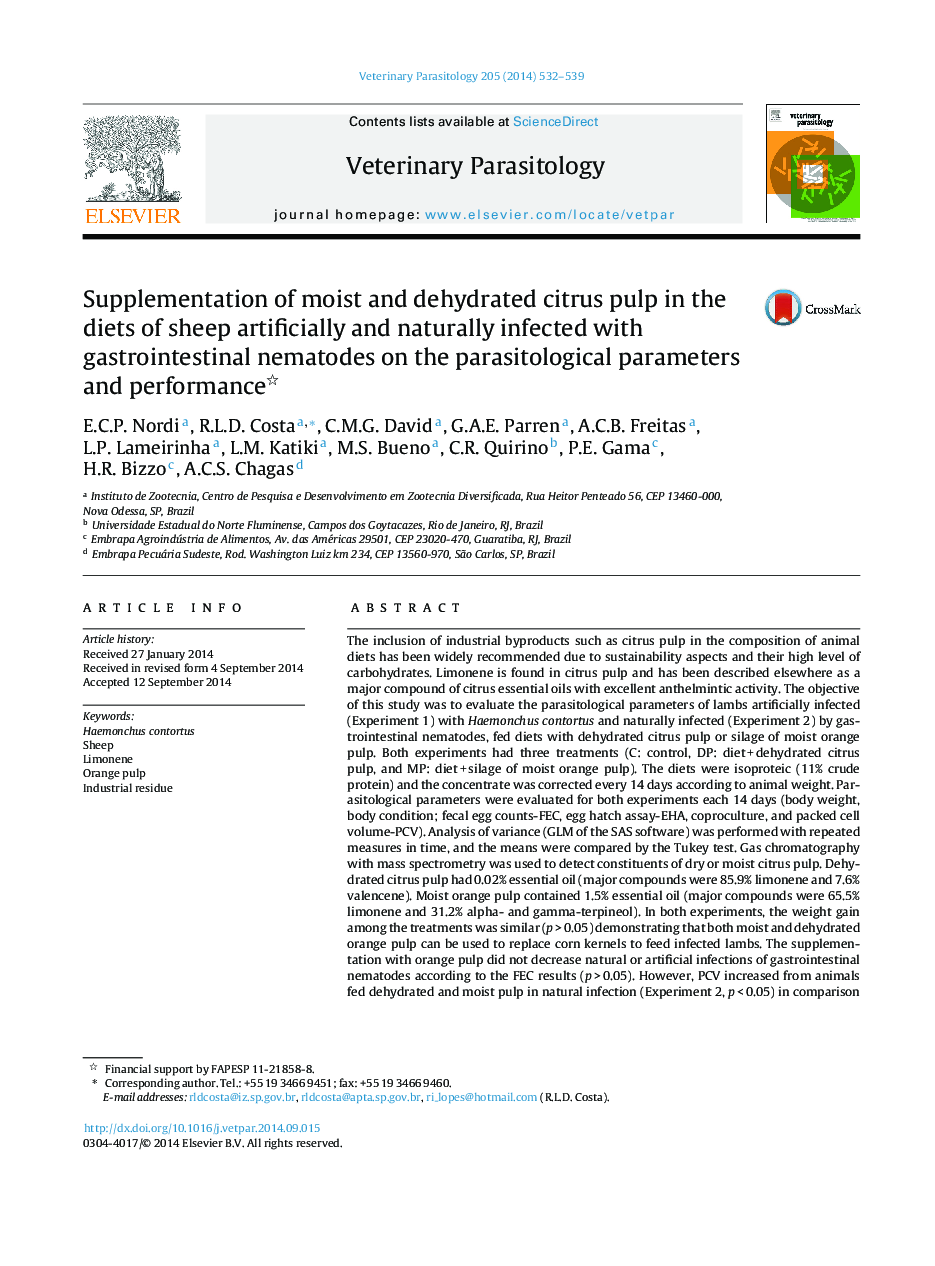| کد مقاله | کد نشریه | سال انتشار | مقاله انگلیسی | نسخه تمام متن |
|---|---|---|---|---|
| 5803062 | 1555680 | 2014 | 8 صفحه PDF | دانلود رایگان |
- Industrial byproducts in the composition of animal diets have been recommended.
- Limonene is found in citrus pulp and has been described with anthelmintic activity.
- The consumption of the dehydrated citrus pulp caused lower hatching rates.
- Packed cell volume increased from animals fed dehydrated and moist pulp.
- This study expands the research horizon for the use of the citrus pulp.
The inclusion of industrial byproducts such as citrus pulp in the composition of animal diets has been widely recommended due to sustainability aspects and their high level of carbohydrates. Limonene is found in citrus pulp and has been described elsewhere as a major compound of citrus essential oils with excellent anthelmintic activity. The objective of this study was to evaluate the parasitological parameters of lambs artificially infected (Experiment 1) with Haemonchus contortus and naturally infected (Experiment 2) by gastrointestinal nematodes, fed diets with dehydrated citrus pulp or silage of moist orange pulp. Both experiments had three treatments (C: control, DP: diet + dehydrated citrus pulp, and MP: diet + silage of moist orange pulp). The diets were isoproteic (11% crude protein) and the concentrate was corrected every 14 days according to animal weight. Parasitological parameters were evaluated for both experiments each 14 days (body weight, body condition; fecal egg counts-FEC, egg hatch assay-EHA, coproculture, and packed cell volume-PCV). Analysis of variance (GLM of the SAS software) was performed with repeated measures in time, and the means were compared by the Tukey test. Gas chromatography with mass spectrometry was used to detect constituents of dry or moist citrus pulp. Dehydrated citrus pulp had 0.02% essential oil (major compounds were 85.9% limonene and 7.6% valencene). Moist orange pulp contained 1.5% essential oil (major compounds were 65.5% limonene and 31.2% alpha- and gamma-terpineol). In both experiments, the weight gain among the treatments was similar (p > 0.05) demonstrating that both moist and dehydrated orange pulp can be used to replace corn kernels to feed infected lambs. The supplementation with orange pulp did not decrease natural or artificial infections of gastrointestinal nematodes according to the FEC results (p > 0.05). However, PCV increased from animals fed dehydrated and moist pulp in natural infection (Experiment 2, p < 0.05) in comparison with the control group. In addition, the consumption of the dehydrated citrus pulp from animals infected with H. contortus (Experiment 1) caused lower hatching rates after 42 days of consumption (p < 0.05), suggesting a tendency to shed fewer eggs to the environment.
Journal: Veterinary Parasitology - Volume 205, Issues 3â4, 15 October 2014, Pages 532-539
